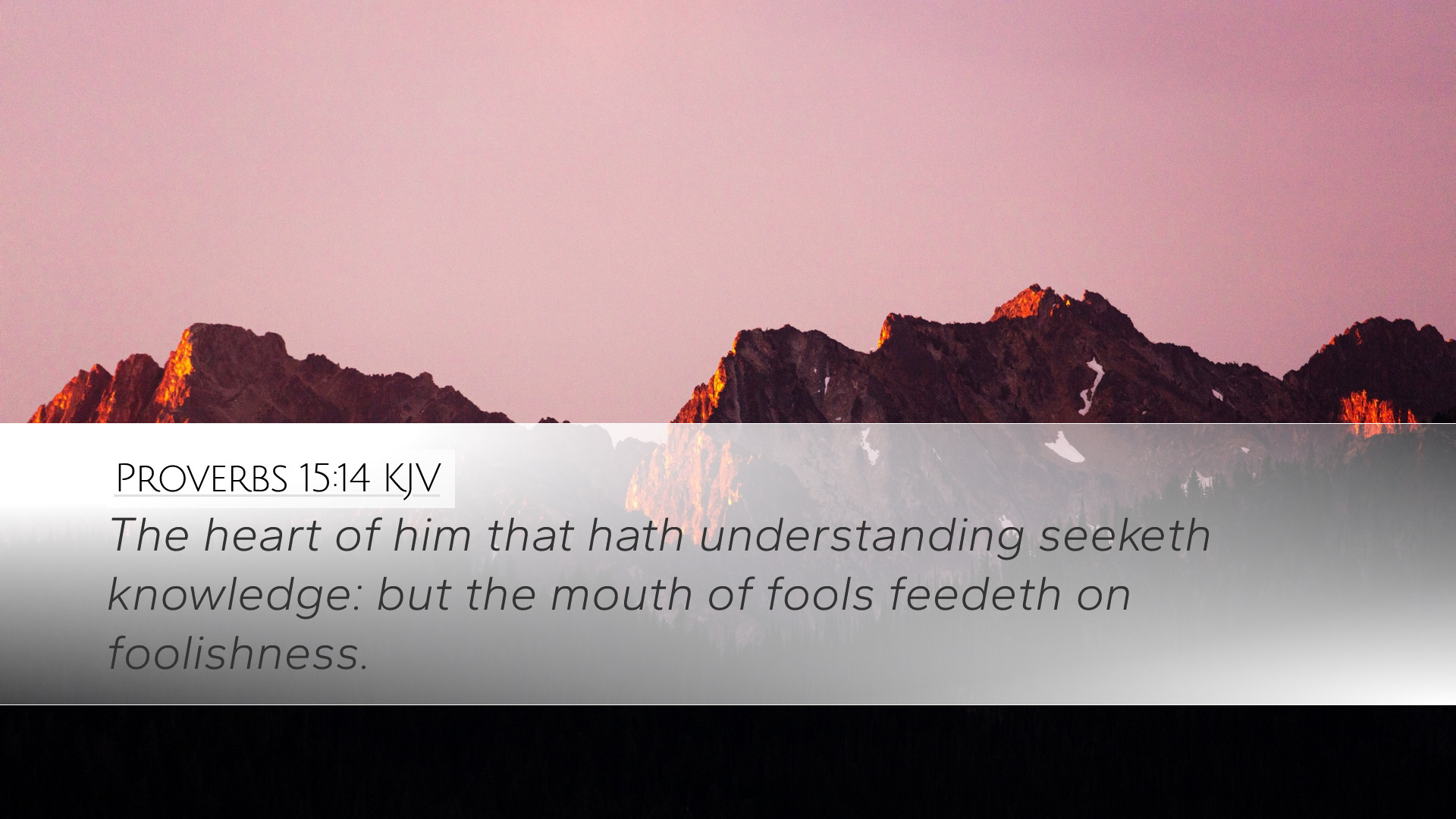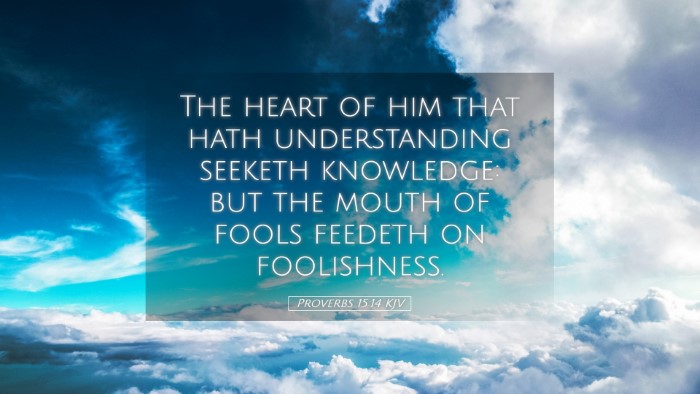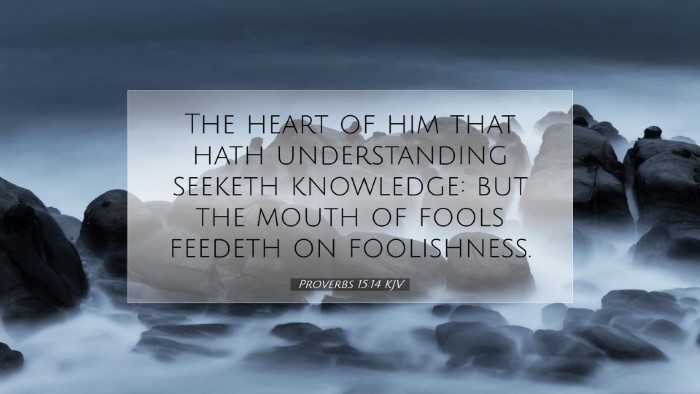Commentary on Proverbs 15:14
Proverbs 15:14 states, "The heart of him that hath understanding seeketh knowledge: but the mouth of fools feedeth on foolishness." This verse contrasts the pursuits of the wise and the foolish, illustrating the difference in their understandings and lifestyles.
Overview
The chapter presents wisdom as a pursuit essential to a fulfilling life, emphasizing the significant role of the heart and understanding in the quest for knowledge. The wise individual seeks after knowledge, while the fool is content to indulge in folly.
Insights from Matthew Henry
Matthew Henry notes that the "heart of him that hath understanding" indicates a profound inner disposition towards wisdom and knowledge. He asserts that true understanding goes beyond intellectual acknowledgment; it encompasses an emotional and volitional commitment to knowledge. For Henry:
- Understanding and Knowledge: The pursuit of knowledge is a lifetime endeavor fostered by a heart inclined towards wisdom.
- Foolishness: Henry emphasizes that the "mouth of fools" indulges in trivialities, suggesting that fools find gratification in ignorance rather than wisdom.
- Seeking versus Feeding: The wise seek nourishment for the soul, while the foolish are satisfied with superficial pleasures.
Insights from Albert Barnes
Albert Barnes expounds upon the dichotomy presented in this verse. He outlines the significance of the "heart" in a person’s quest for understanding:
- The Role of the Heart: Barnes explains that in biblical terms, the heart represents the entire inner self, including intellect, will, and emotions.
- Seeking Knowledge: The wise are not passive; they actively pursue insights that lead to greater understanding and spiritual growth.
- Foolish Disposition: The foolish revel in ignorance; their talk is devoid of depth and significance, revolving around meaningless topics.
Insights from Adam Clarke
Adam Clarke provides a thorough analysis of the contrast between the wise and the foolish. He highlights:
- Mental Hunger: Clarke remarks that wisdom engenders a desire for learning, indicating an individual’s intrinsic need to grow and develop spiritually and intellectually.
- Feeding on Foolishness: He discusses how the foolish lack the foresight to seek what truly sustains them, resulting in a shallow life spent on trivial matters.
- Spiritual Implication: Clarke implies that the heart's seeking of knowledge is vital for spiritual development and maturity in faith.
Application for Pastors and Theologians
This verse becomes particularly significant when applied to pastoral care and theological education. Shepherds are called to nurture congregants' hearts, urging them to seek knowledge that will enrich their spiritual lives. It emphasizes:
- Discipleship: Encouraging congregants to actively pursue wisdom through studying Scripture and engaging in community learning.
- Preaching and Teaching: Pastors should focus on imparting knowledge that transforms and leads to wise living rather than mere entertainment or trivial discussions.
- Wisdom in Leadership: Church leaders are invited to reflect on their own pursuits of wisdom, setting an example for those they lead.
Conclusion
Proverbs 15:14 serves as a vital reminder of the heart's condition in the pursuit of knowledge. As Matthew Henry, Albert Barnes, and Adam Clarke collectively illustrate, the wise actively seek wisdom, foster a deep understanding, and steer clear of the foolishness that characterizes many in society today. This passage challenges pastors, students, and scholars alike to engage earnestly in their quest for knowledge, aiming for a life characterized by wisdom and understanding.


